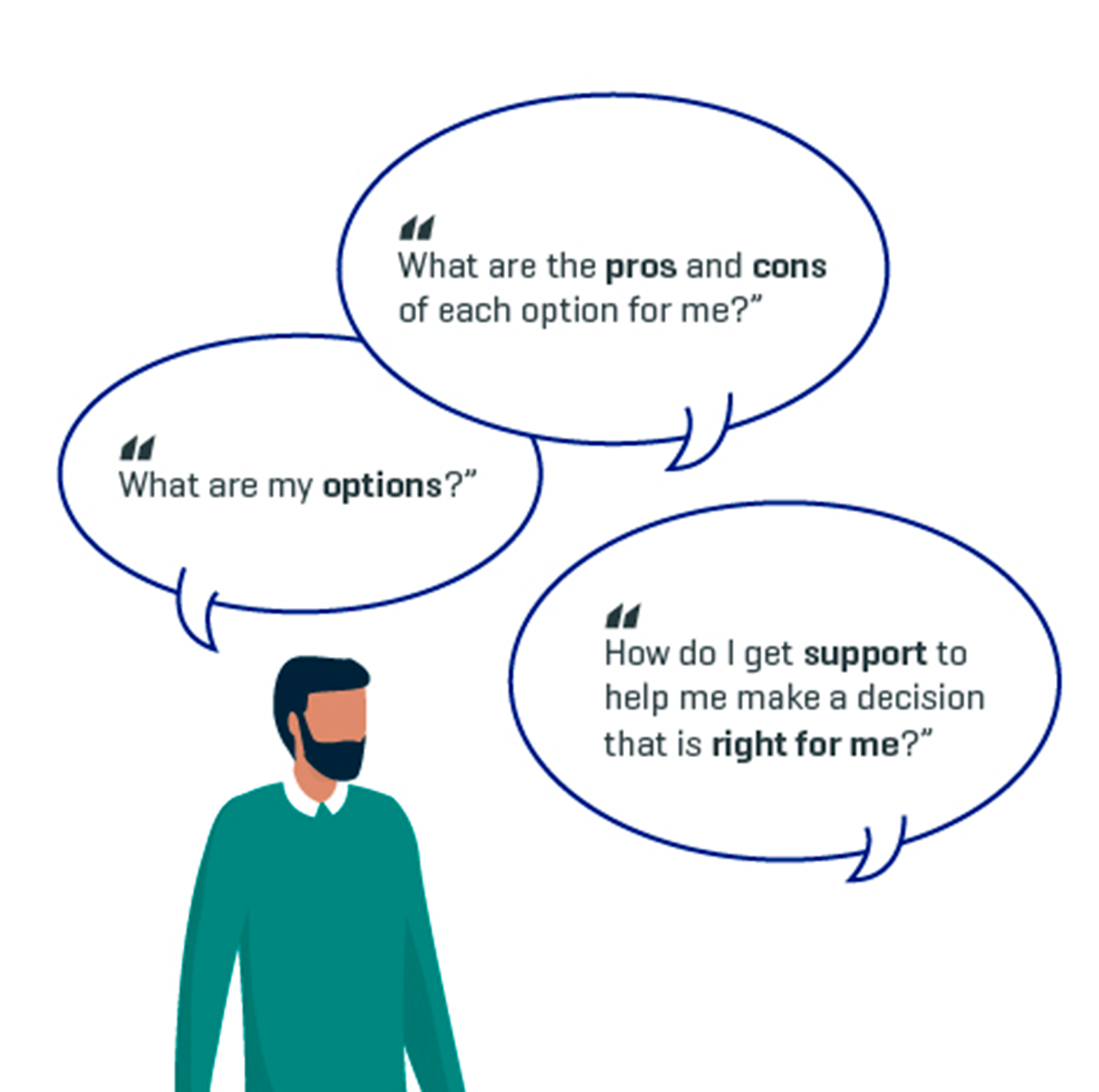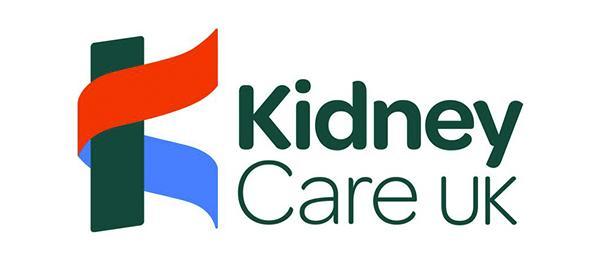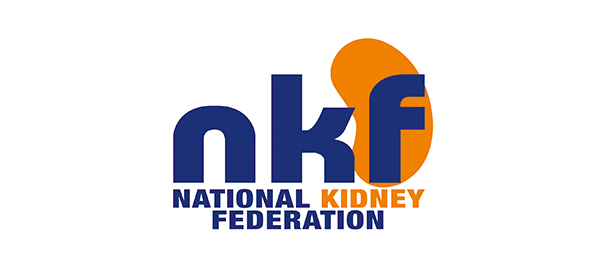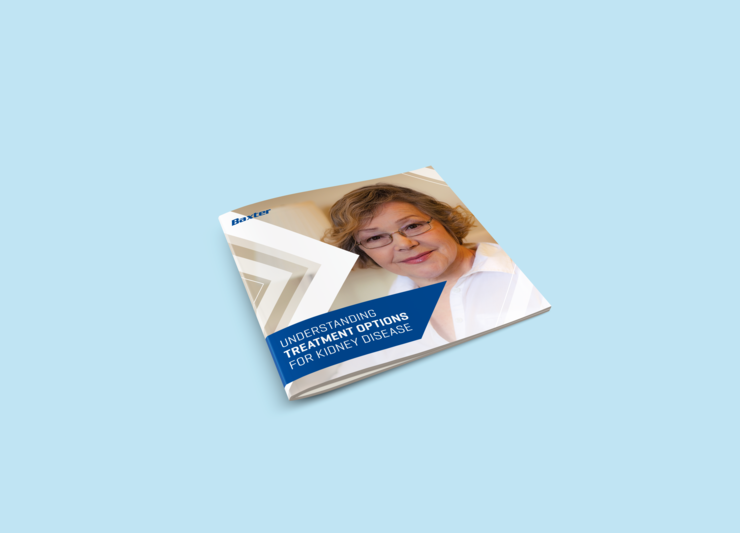Next Steps
Getting the most out of the time you have with your healthcare team sometimes means asking the right questions.


Getting the Right Information at the Right Time
The information on this website is intended to supplement what you have discussed with your healthcare team. Combining this information with what you have already been told may help you make important treatment decisions.
- to decide whether or not you want to have treatment
- to choose between different types of treatment
- to decide whether you want to continue with the same treatment
What you choose to do should depend on what is important to you.

3 Good Questions to Ask
When it comes to you having to make decisions about your healthcare, in collaboration with your healthcare team, it is a good idea to ask these 3 questions:
1. What are my options?
2. What are the pros and cons of each option for me?
3. How do I get support to help me make a decision that is right for me?
These 3 questions are based on
Shepherd HL, et al. Three questions that patients can ask to improve the quality of information physicians give about treatment options: A cross-over trial. Patient Education and Counselling, 2011;84: 379-85
For many patients Kidney failure is for life – transplantation provides a cure but not every person can have a kidney transplant. Dialysis is often the only treatment available. Home dialysis offers the best outcomes and quality of life but for many patients, this can feel a daunting and often, lonely prospect. Information about dialysis choices which is easy to understand allows patients to fully participate in discussions with their health care clinicians when discussing what sort of dialysis they want.
Patient-centeredness is a core aspiration of health care professionals and essential to shared decision making which ensures that patients feel empowered to make the right decision at the right time with the support of their clinicians.Dr Jyoti Baharani, Consultant in Nephrology and General Medicine at University Hospitals Birmingham
It is very daunting when your kidneys fail and can make you feel you have no control over what happens next, or what to decide. Being tired and feeling ill adds greatly to this so good information, education and support, supported by careful and patient listening over time, are so important to enable people to understand what their options are and what they might mean to them and their daily lives. Reaching an informed choice helps in getting back a bit of control, whether that is to go onto the transplant list or proceed with a living donation, to dialyse in hospital or at home or not to have active treatment
Fiona Loud, Policy Director, Kidney Care UK, and kidney patient

Kidney Care UK
Kidney Care UK are the leading kidney patient support charity providing practical, financial and emotional support for kidney patients and their families and campaigning to improve care and services across the UK.

National Kidney Federation
The National Kidney Federation is a national kidney charity run by Kidney Patients for Kidney Patients. Most Renal Units have a Kidney Patient Association (KPA) specially attached to that unit. The NKF campaign for improvements to renal provision and treatment, and national patient support services.
